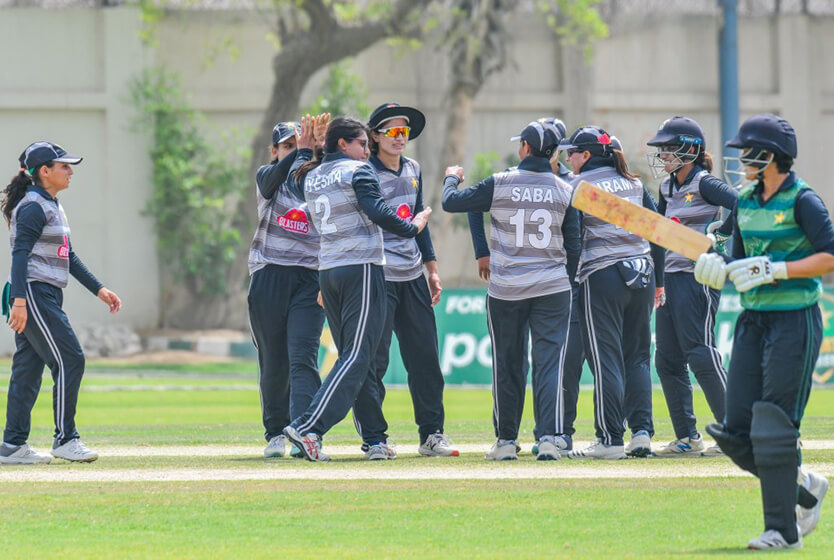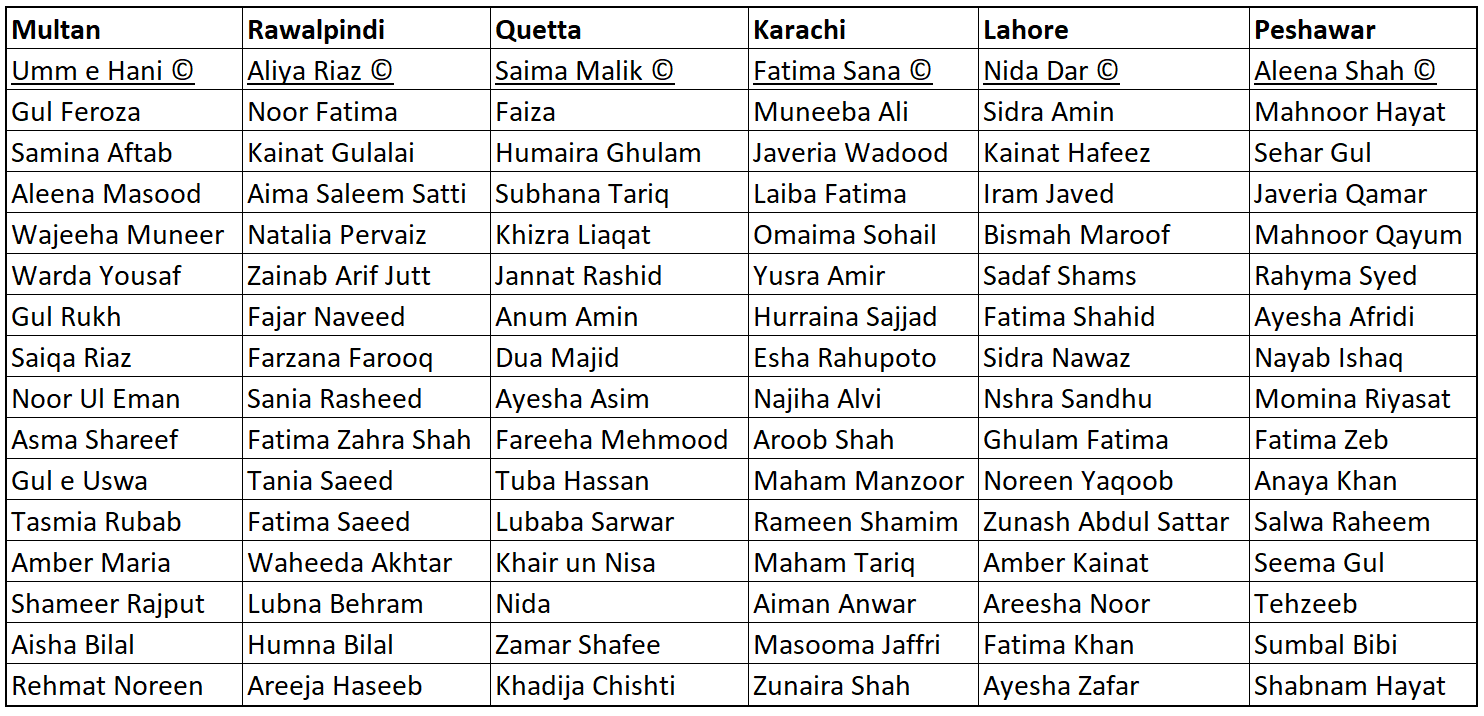
One Step Forward, Five Steps Back
After almost six months since Pakistan Women’s last domestic tournament (Pakistan Cup), the PCB is set to announce a T20 domestic tournament starting on 15 January. One would expect that if the tournament was starting on 15 Jan, it would have been announced already, but this is not how things work in the PCB. In the PCB, tournaments and squads are announced a day before the opening match.
But let’s momentarily put aside the operational ineffectiveness of PCB and dive straight into the bigger problem. Today, the squads and schedules of the six teams participating in the upcoming domestic season were leaked on X (Twitter). With every team I scrolled through, my heart whispered, “Here it comes again” – the recurrence of ZTBL, a magnificent team from the past – and sure enough, there it was. No prizes for guessing which team I’m talking about from the squads below.
As much as I want to celebrate the six-team domestic tournament, I can’t ignore the concerns arising about the evident imbalance in the squads. A quick analysis reveals that four out of the six squads seem to be at a significant disadvantage in terms of player strength. Karachi and Lahore have a robust lineup with nine capped players each, while Rawalpindi and Quetta lag behind with only three capped players. Multan has two, and Peshawar, surprisingly, features an entire squad of uncapped players. Despite an equal number of capped players, Lahore’s team stands out as more formidable compared to Karachi’s.
In the past, when ZTBL thrived on the shoulders of the giants of women’s cricket in Pakistan, one could always speculate that there was a reason why a team like ZTBL existed. But this time, it looks like nothing but a butchering of merit. If Lahore-born Tuba Hassan can be part of the Quetta squad, then it was surely possible for other Lahore or Karachi-born Pakistan-capped players to be distributed among the other teams to make more balanced squads and ensure a better competition.
I remember this one match way too well. In a match in 2016, ZTBL posted a monstrous total of 507/3 in 50 overs, while Multan was bowled out for a paltry 53 within 30 overs. As a teenage fan, celebrating Sana Mir’s four-wicket haul and twin 150s by Bismah Maroof and Javeria Khan was intoxicating. But it didn’t take long to grasp the harmful consequences of such lopsided matches.
Simply increasing the number of players in domestic tournaments isn’t enough to guarantee quality. Years of underinvestment and neglect have left Pakistan Women’s cricket struggling to develop a strong talent pool. The presence of players like Nida Dar and Bismah Maroof in one squad, who can single-handedly swing matches, not only raises questions about fairness but also casts doubt on the competence of those responsible for team selection. These imbalanced squads offer no glimpse of a better future. How can players in weaker teams find motivation when faced with overwhelming odds against star-studded lineups? Young talents deserve to develop alongside established players, not get hammered by them.
Adding to the concerns is the revelation that three matches will be played simultaneously at different venues. One can only wonder how selectors will effectively evaluate players when matches are played in this manner. At a time when women’s cricket internationally is now being played more and more at night, the PCB has decided to hold all the matches in the morning to “better prepare” our players for the challenge ahead.
To top it all off, the PCB also managed to clash this tournament with a U19 tour to Bangladesh. Not only will the U19 squad touring Bangladesh miss out on participating in the domestic tournament, but those named in the U19 camp who might not make it to the final squad of U19 are also set to miss this T20 competition.
Pakistan’s women cricketers already suffer from limited match exposure. How can the board fumble scheduling this badly, especially after past blunders like the Emerging team clash with the Pakistan Cup just last year?
This upcoming T20 domestic tournament will be played by six teams; this is the first senior domestic tournament since 2017 featuring more than four teams. This tournament was supposed to present an opportunity for the PCB to course-correct and build a stronger foundation for Pakistani women’s cricket. However, now it looks like another missed opportunity, adding to a long list of what-could-have-beens.
Accountability is crucial in addressing the glaring issues faced by women in domestic cricket. Without it, a culture of negligence and mismanagement thrives, unchecked by consequences. The imbalanced squads, questionable scheduling, and clashing events all point to a lack of responsibility and ownership at every level. Holding the people responsible for the domestic structure accountable is the only way to push for reforms in the structure and resource allocation. Only with accountability can we hope to create a fair and thriving ecosystem for women’s cricket in Pakistan.
The opinions expressed solely belong to the writer and do not necessarily reflect the views of Grassroots Cricket.








Leave a Reply